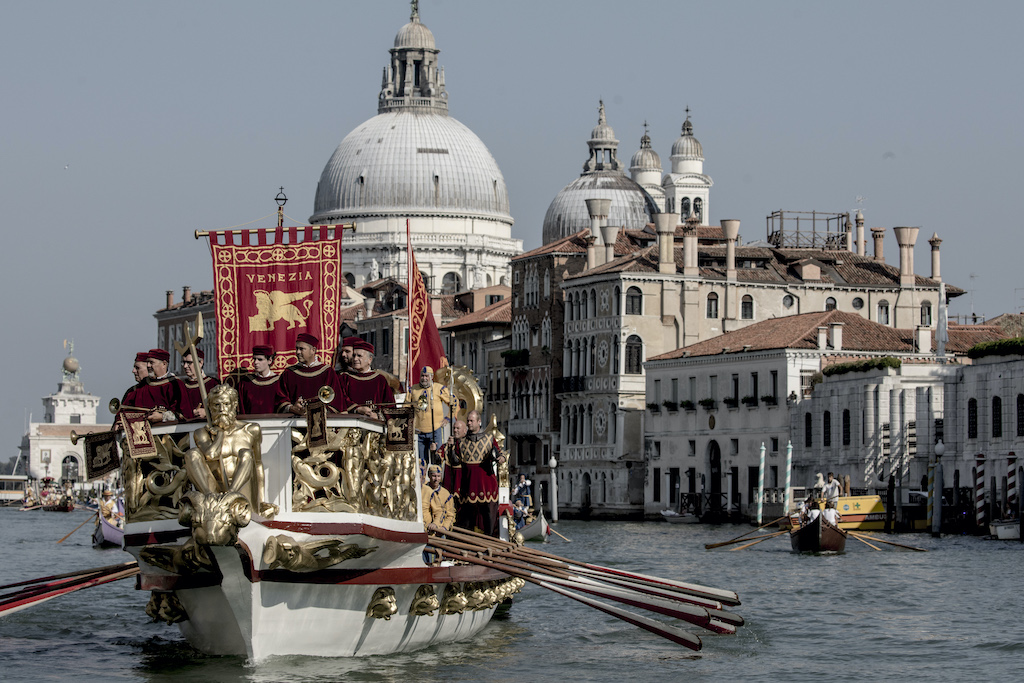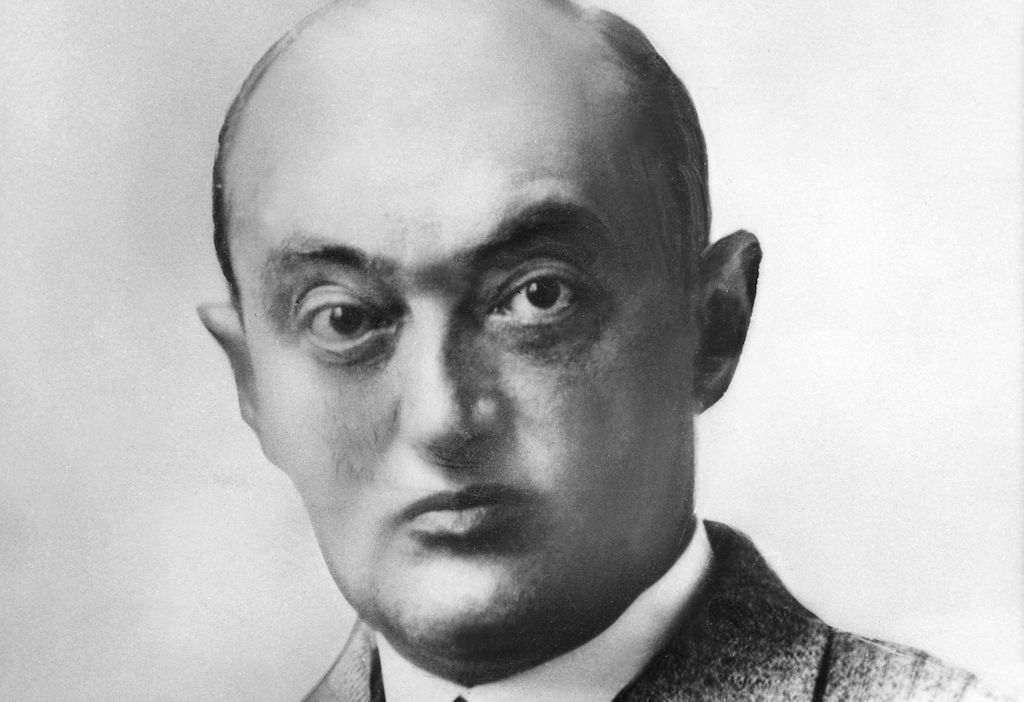A governance tip from the Republic of Venice
Politics have become increasingly dysfunctional in Western democracies. The most enduring republic in Europe’s history offers surprising insight into how confidence may be restored.

In a nutshell
- Since the dawn of democracy, political parties have been prone to corruption
- However, parties regulate political competition better than all tried alternatives
- Parties are indispensable as the electoral mass is incapable of action
An undeniable virtue of democracy – often taken for granted – is that it allows peaceful changes of government. But the veneer of civilization is thin and brittle. In the course of the American presidential election, serious consideration was given to the possibility that civil war-like conflicts could arise from within a solid democracy. Democrats and Republicans confronted each other vehemently, as if they wanted to confirm the beliefs of German jurist and political theorist Carl Schmitt (1888-1985), who considered the distinction between friend and foe to be the essential criterion of the political. “[E]very religious, moral, economic, ethical, or other antithesis transforms into a political one if it is sufficiently strong to group human beings effectively according to friend and enemy,” he wrote in The Concept of the Political.
However, according to Schmitt, such a partisan opposition, which is frequently expressed in democracies, must never be seen as absolute, because “reasonable compromises and a loyal exchange of both parties could … be established if these parties do not intend to abolish or disqualify each other, but instead conduct themselves according to the rules of fair play.” (Constitutional Theory, 1928).
Bad-boy parties
George Washington warned in his 1796 farewell address to Congress of the “common and continual mischiefs of the spirit of party” which “agitates the community with ill-founded jealousies and false alarms, kindles the animosity of one part against another, foments occasionally riot and insurrection. It opens the door to foreign influence and corruption, which find a facilitated access to the government itself through the channels of party passion.”
In his seminal 1911 work Political Parties, Robert Michels (1876–1936) argued that an “iron law of oligarchy“ determines the development of every political party and every human association. Whatever they stand for and however they organize themselves, in the end, they all serve the selfish interests of their leaders. “Power tends to corrupt and absolute power corrupts absolutely,” as Lord Acton (1834-1902) observed.
Opinion polls suggest that ‘post-democracy’ is losing the masses.
There are reasons to believe that we are on the road to a “post-democracy” as Colin Crouch predicted in his eponymous book (2003). He argued that in the Western world, almost unassailable “liberal” elites control the commanding heights of society, from multilateral institutions, central banks and big business down to political parties, mass media, and education. They insulate themselves against competition and the shifting moods and preferences of the electorate. In such a “neo-feudal” system, the framework of democratic institutions may survive only as an empty shell. Gradually, the author explains, an experimental radicalism has established itself in the “liberal elite.” Its members want to permanently upend the world according to their idiosyncratic obsessions and standards. Those liberal fixations manifest themselves through ecologism, hysteria-driven climate policy and genderism, as well as a global humanitarianism that demands the opening of all borders and letting millions of migrants from Africa and Asia into Europe.
‘Anti-political’ experiments
However, opinion polls suggest that “post-democracy” is losing the masses. In October 2020, The Bennett Institute for Public Policy (University of Cambridge) published a report based on data from more than 4.8 million respondents in 160 countries accumulated between 1973 and 2020. The report’s primary finding was that “younger generations have become steadily more dissatisfied with democracy – not only in absolute terms but also relative to older cohorts at comparable stages of life.”
Such disillusionment should not come as a surprise after the 2008 financial crash, the adverse effects of the euro crisis in southern Europe and the 2015 refugee and migration crisis. In Europe, the persisting incapacity of the European Union and its member states to block the uncontrolled mass migration has contributed to the decline of the traditional parties and paved the way for the rise of populist parties.
Populists are known for substituting “reasonable compromises and a loyal exchange” between parties with no-holds-barred warfare between “people” and “elites”. The temperate “Age of Moderation” that had shaped the Western political landscape since 1945 has given way to an “Age of Discord” heated by political passions.
A ‘digital democracy’ only works if questions that affect citizens directly are put to the vote.
Interestingly, the Cambridge report mentions that young people are less dissatisfied with democracy in countries with left- or right-wing populist parties in charge, at least during their first legislative term. As it seems, even a breeze of hope that things may change can reanimate democratic instincts. Dissatisfaction and lower voter turnout do not necessarily lead to political apathy: they often go hand in hand with nonparty- and anti-system-activism.
“Anti-political politics” understood as a nonpartisan democracy was very popular among dissidents in Eastern Europe before and immediately after the Iron Curtain’s fall. Czech playwright-turned President Vaclav Havel (1993-2003) and his dissident circle imagined a modern Platonic republic governed by wise men who would organize in free-floating clubs and associations. Their dream did not last long. All post-communist countries eventually settled for a classical parliamentary party system. Democracy needs parties to work and to promote change.
More of the same
From time to time disdain for politics creates new anti-political movements. In Italy, first Silvio Berlusconi’s Forza Italia and later on Beppe Grillo’s Five Star Movement tried to substitute traditional decision-making with day-by-day plebiscites. The experiment rapidly failed. Both movements started with a populist concept that gave them votes and when they had to take on government responsibility, they easily adapted to fit into the party and state system.

To win elections, parties need to set the political agenda, mobilize human resources, form networks, and raise money. A “digital democracy” only works if questions that affect citizens directly are put to the vote. The public is overwhelmed when it comes to complex problems and long-term decisions. Winston Churchill, who believed that democracy was the least harmful form of government, claimed that “the best argument against democracy is a five-minute conversation with an average voter.” One reason for this state of affairs is that the minimal influence of one vote is disproportionate to the effort required in becoming informed enough for an in-depth engagement in public life. Voter ignorance has a rational core.
“A party is a group whose members propose to act in concert in the competitive struggle for political power … The first and foremost aim of each political party is to prevail over the others in order to get into power or to stay in it,” wrote Joseph A. Schumpeter (1883-1950) in his seminal Capitalism, Socialism and Democracy. He observed further:
In a parliamentary democracy, the path to power leads through the maximization of votes attracted.
“Party and machine politicians are simply the response to the fact that the electoral mass is incapable of action other than a stampede, and they constitute an attempt to regulate political competition exactly similar to the corresponding practices of a trade association. The psychotechnics of party management and party advertising, slogans and marching tunes, are not accessories. They are of the essence of politics. So is the political boss.”
In a parliamentary democracy, the path to power leads through the maximization of votes. As long as that is the case, there is no getting around the parties.
Possible fix
On second thought, it does not have to be like that. The most stable republic in the world was the Republic of Venice. For six centuries, from 1172 to its fall in 1797, an electoral system was in place to prevent the formation of parties and interest groups from influencing the election.
Previously, a wrong decision made under the masses’ pressure had led to a catastrophic defeat against Byzantium. To avoid such a risk in the future, the People’s Assembly ceded its right to choose the doges to electors. The procedure was long and complicated. From the nobili homini of the Grand Council, 30 were chosen by lot, from which nine were drawn. The nine chose 40, from which 12 were drawn. The 12 chose 25, out of which nine were drawn, which in turn chose 45, out of which 11 were drawn. These 11 ultimately elected 41 electors.
Isolated from the outside world, they nominated and questioned their candidates, voting in turn until one of them received at least 25 votes. The People’s Assembly had to endorse the election.
Theoretically, it is entirely feasible to introduce a similar electoral system and reduce the influence of parties to a minimum. However, it is unlikely that political organizations would agree to such a reform.







